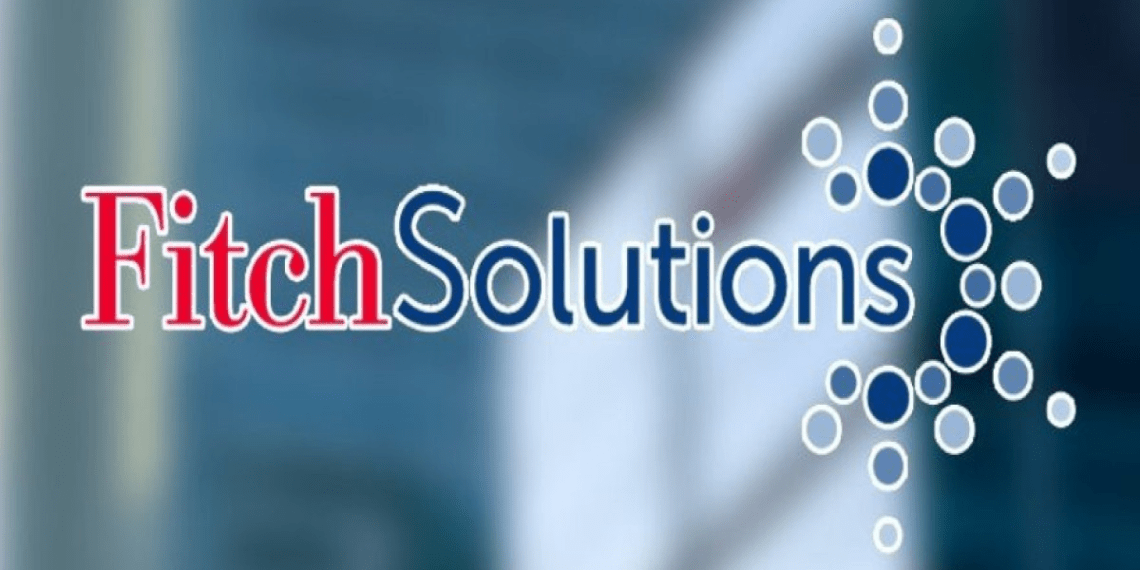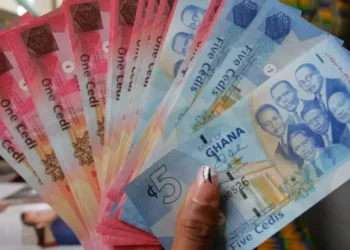Fitch Solutions has revised its end-of-year 2025 forecast for the Ghanaian cedi, projecting a significantly stronger local currency at GH¢13.0 to the US dollar, down from its earlier estimate of GH¢15.5. This new projection suggests that the cedi will appreciate by 12.9% in 2025, offering renewed optimism for the Ghanaian economy as it battles inflationary pressures and external vulnerabilities.
The sharp revision in Fitch’s forecast is largely driven by the cedi’s unexpected appreciation in recent weeks. According to the UK-based research firm, the local currency appreciated by 16% between late April and mid-May 2025, buoyed by rising international gold prices.
Ghana, a leading gold exporter, benefits directly from higher gold prices. The increase in revenue from gold exports improves the country’s foreign exchange reserves, enhances investor confidence, and reduces pressure on the local currency. “The cedi has appreciated by 16% between late April and the middle of May (time of writing) on the back of higher gold prices,” Fitch stated in its report.
This appreciation has prompted Fitch’s Country Risk team to revise the end-2025 exchange rate forecast to GH¢13.0 to the dollar, from the previous GH¢15.5.
Impact on Inflation and Monetary Policy
The stronger cedi is expected to have a disinflationary effect on the Ghanaian economy. With the country being a net importer of essential goods such as fuel, cereals, pharmaceuticals, and plastics, a firmer local currency reduces the cost of imports. This, in turn, eases inflationary pressure on consumers and businesses.
In response to earlier inflation concerns, the Bank of Ghana (BoG) had implemented a surprise 100 basis-point hike in its policy rate in March 2025, taking it to 28.00%. However, with inflation now projected to decelerate due to the strengthening cedi, Fitch expects the BoG to reverse course.
“We therefore expect the BoG to cut the policy rate by a cumulative 200 basis points in the second half of 2025, ending the year at 26.00%,” the report added. This anticipated monetary easing will provide much-needed relief for businesses facing high borrowing costs and consumers dealing with the cost of living.
Boost to Household Purchasing Power and Spending
A stronger currency and potential policy rate cuts are poised to enhance household purchasing power. Fitch believes these dynamics will serve as key drivers of consumer spending growth in 2025. Lower inflation and borrowing costs create a favorable environment for domestic consumption and private sector expansion.
This positive outlook could provide a much-needed boost to Ghana’s struggling economy, which has faced challenges in recent years including debt distress, currency volatility, and inflation spikes. The appreciation of the cedi could also improve investor sentiment, attract foreign capital, and strengthen the country’s fiscal outlook.
While Fitch’s revised forecast signals a positive shift, it’s worth noting that as of early June 2025, the cedi is trading at approximately GH¢11.00 to the dollar. The firm’s prediction, therefore, factors in some moderation in the cedi’s value throughout the rest of the year before ending at GH¢13.0.
This suggests that while the currency may experience some short-term fluctuations, the overall 2025 trajectory remains one of strength and appreciation, particularly when benchmarked against the end-2024 rate of GH¢14.7/$1.
The future path of the cedi will depend not only on gold prices but also on the government’s fiscal discipline, the BoG’s monetary policy strategy, and global financial conditions. Any major disruptions—such as a sudden dip in gold prices or unexpected capital outflows—could alter this trajectory.
READ ALSO: Cedi Outperforms African Peers with 40% Year-to-Day Jump, Set to Strengthen Again



















